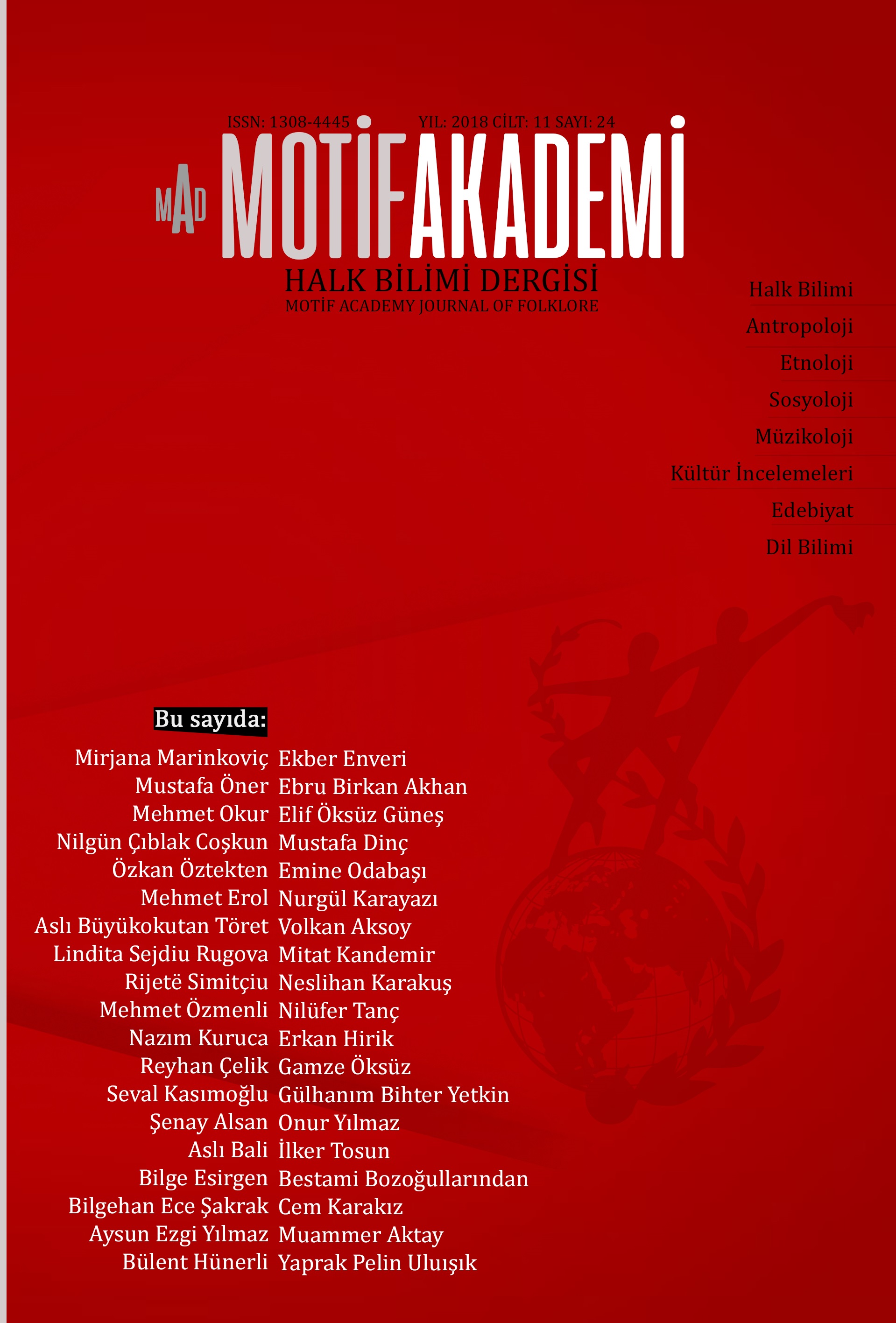ELEKTRONİK KÜLTÜR ORTAMINDA BEDDUALARIN DÖNÜŞÜMÜ
TRANSFORMATION OF IMPRECATION IN ELECTRONIC-CULTURE ENVIRONMENT
Author(s): Seval KasımoğluSubject(s): Sociology of Culture, ICT Information and Communications Technologies
Published by: Motif Halk Oyunları Eğitim ve Öğretim Vakfı
Keywords: Imprecation; electronic culture; postmodern; internet; parody;
Summary/Abstract: This article will be discussing the internet imprecations and try to do an exposition of how this type has been shaped in electronic-culture environment. With the increase of internet-use after 20th century, folkloric types have also been involved in this medium. As well as being presented to the internet directly, folkloric elements are also existing by being adopted to the internet environment. Imprecations are also among the types that continue to exist in internet. It is possible to come across imprecation samples that are conveyed to the internet in their traditional form, while some other imprecation examples have been re-shaped with internet culture. Traditional imprecations are requests by victims of injustice from God by using damning words and asking for the person causing the injustice to be punished. Imprecations are used when an individual feels he is too weak to do something himself or when he does not want to use force. However, these people fear that their word words would come back to them. Another characteristic in traditional imprecations is that they have an aspect of faith. Even though the traditional structural characteristics are partially maintained in internet imprecations, they are also observed to have an element of humour in their contents, which is a distinguishing characteristic of the postmodern era. In this sense, the imprecations found in the internet, which can be defined as a place of festivities, can be said to have suspended the elements of fear and faith. It is possible to read this change in the main target of the type as a difference of context. In the traditional culture, there is a belief that imprecations are mostly “recited” by women, but contrastingly, internet imprecations are “written” and used by young males, the majority among the users of the virtual world. Internet imprecations are reaching to a much wider mass than those in the traditional environment, but even though they are using what is traditional, internet imprecations did not establish a tradition.
Journal: Motif Akademi Halkbilimi Dergisi
- Issue Year: 11/2018
- Issue No: 24
- Page Range: 47-58
- Page Count: 12
- Language: Turkish

